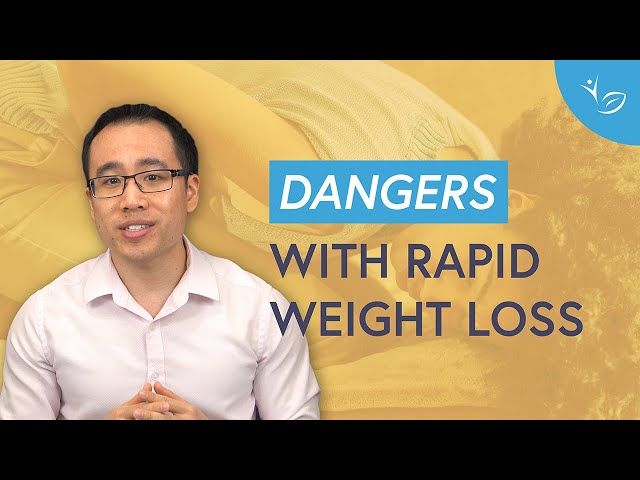
Have you ever wondered, "Why do I lose weight so fast?" It’s a question that many find themselves asking, often with mixed feelings. Rapid weight loss can bring both joy and concern, prompting inquiries into its causes and implications. Losing weight quickly might seem like a blessing at first, but is it always a good thing? Let’s delve into this phenomenon.
Commonly, several factors can lead to significant and unexpected weight loss. According to Cleveland Clinic, medical conditions play a crucial role in unexplained weight loss. Conditions such as hyperthyroidism, where the thyroid gland is overactive, can accelerate metabolism, leading to rapid weight loss. In fact, it’s not unusual for individuals experiencing this condition to drop pounds with little to no effort.
Another cause could be diabetes. When diabetes is poorly managed, the body begins to burn fat instead of glucose for energy. This metabolic shift can result in weight loss that poses health risks. Moreover, serious conditions like cancer or chronic infections such as tuberculosis can also contribute to unintentional weight loss. It's alarming, but knowing the underlying causes can push individuals to seek necessary medical attention.
Perhaps you’ve come across discussions on forums or platforms like Reddit where users share their journeys. One such user stated, "I lost 15 pounds in just a month without even trying!" While this statement might encourage some, it’s imperative to recognize that not everyone experiences weight loss in the same way. Factors like current weight, metabolic rate, muscle mass, and overall health can dramatically alter how quickly weight is shed.
Interestingly, lifestyle changes can spark rapid weight loss, particularly when starting a new workout regimen or diet. However, it’s not only a matter of caloric intake versus expenditure. Stress plays an unexpected role too. For example, when one undergoes significant stress—whether from personal issues or work—cortisol levels can fluctuate, affecting appetite and metabolism. Someone could say, "Ever since I started a new job, I can’t keep any weight on!" In such cases, stress management becomes just as crucial as diet or exercise in maintaining a healthy weight.
But let’s also address dietary habits. Some individuals turn to extreme dieting or intermittent fasting. Rapid results can be seen with these methods, but they often come at a cost. Dr. Griebeler from Cleveland Clinic Health Essentials warns, "When you lose weight too quickly, your body slows down its calorie-burning process as a protective measure. This reaction can lead to a cycle of rapid weight loss followed by eventual weight gain." A quote like this emphasizes the delicate balance between weight loss strategies and long-term health.
Moreover, nutrient deficiencies can stem from sudden dietary restrictions. Individuals often overlook this aspect. Lower metabolism due to inadequate caloric intake and lack of essential nutrients can severely impact overall wellbeing. A user on a health forum might candidly share, "I tried to lose weight too fast, and now I feel drained all the time!" This shifts the focus to understanding safe and sustainable practices when aiming to lose weight.
Equally important is to recognize that unexplained weight loss can serve as a red flag for potential health issues. Health professionals often advise seeking medical help if weight loss exceeds more than 5% of total body weight over 6 to 12 months, especially if accompanied by other symptoms. This aligns with recommendations from Healthline, which stress the importance of addressing sudden weight changes swiftly.
It’s vital to highlight the emotional aspect of rapid weight loss. While society often regards weight loss as a positive change, this doesn’t factor in mental health implications. Individuals might feel ecstatic about fitting into smaller sizes, but they may also experience anxiety over maintaining their new weight. A community member might express this inner conflict, stating, "I lost so much weight, but now I worry every time I eat!" Mental health should never be sidelined when discussing weight management.
In conclusion, the question, "Why do I lose weight so fast?" can encompass various dimensions—health conditions, lifestyle changes, dietary practices, and emotional wellbeing. Understanding these factors offers clarity and, ideally, guidance towards healthier choices. Whether driven by medical necessity or personal goals, embarking on a weight loss journey should always prioritize overall health and balance.
If you or someone you know is grappling with rapid weight loss, consider reaching out to a healthcare professional. Taking the first step in understanding the reasons behind weight loss not only fosters a comprehensive view of health but empowers individuals in managing their well-being effectively. Remember, it’s not just about the numbers on a scale; it’s about achieving a harmonious and healthy lifestyle.







